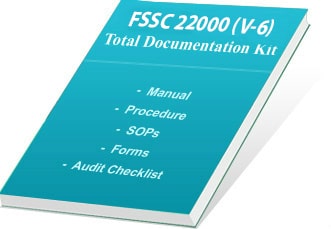
The food industry has evolved beyond traditional safety concerns. Today, sustainability, ethics, and environmental stewardship are just as important. FSSC 22000 has adapted to this new landscape, providing companies with a framework that fosters both safe production and sustainable growth.
Let’s take a closer look at how FSSC 22000 helps drive sustainability in the food industry.
1. Encouraging Responsible Resource Management
FSSC 22000 requires organizations to systematically assess and control risks that could affect food safety. But many of these risks — like poor water quality, waste mismanagement, or unsafe chemical use — also directly impact the environment.
By pushing companies to monitor and manage these risks, FSSC 22000 naturally encourages smarter, more sustainable use of resources like water, energy, and raw materials. Businesses that implement FSSC 22000 are often better at minimizing waste, reducing their carbon footprint, and preserving the ecosystems they depend on.
2. Building Stronger Supply Chains
Sustainability isn’t just about what happens inside a factory — it’s also about who you work with and how. FSSC 22000 emphasizes supply chain management, requiring companies to carefully select and monitor their suppliers based on food safety and quality standards.
In practice, this often means partnering with suppliers who prioritize sustainable farming practices, ethical sourcing, and environmental responsibility. Stronger, more transparent supply chains reduce risks, improve traceability, and build a more sustainable food system from the ground up.
3. Promoting Food Waste Reduction
Food waste is a major global challenge. According to the FAO, roughly one-third of all food produced is lost or wasted. FSSC 22000 certification can help tackle this problem by improving process control, inventory management, and shelf-life monitoring.
By preventing contamination, spoilage, and inefficiencies, certified companies can significantly cut down on waste — saving food, saving money, and helping to fight hunger and climate change all at once.
4. Supporting a Culture of Continuous Improvement
One of the key principles behind FSSC 22000 is continuous improvement. Certified organizations are required to regularly audit their processes, analyze performance, and look for ways to do better.
In the context of sustainability, this mindset leads to ongoing efforts to improve environmental performance — such as reducing emissions, adopting greener technologies, optimizing transportation, or switching to renewable energy sources. Sustainability becomes a long-term journey, not a one-time goal.
5. Aligning with Global Sustainability Goals
Finally, FSSC 22000 isn’t working in isolation. It’s closely aligned with other global initiatives aimed at building a safer, healthier, and more sustainable world. For example, it supports key objectives of the United Nations Sustainable Development Goals (SDGs) — particularly SDG 2 (Zero Hunger), SDG 12 (Responsible Consumption and Production), and SDG 13 (Climate Action).
Organizations that achieve and maintain FSSC 22000 certification are not just protecting their brand and meeting regulatory requirements — they’re actively contributing to a global movement for positive change.
Get Ready-to-Use FSSC 22000 Documents for Easy Compliance
Implementing FSSC 22000 can feel overwhelming, especially for companies just starting their food safety journey. From policies to procedures to detailed records, there’s a lot of documentation involved.
Certification Consultancy provides ready-to-use, editable FSSC 22000 documents — such as food safety manuals, SOPs (Standard Operating Procedures), audit checklists, risk assessment templates, and training guides — can make compliance faster, easier, and more reliable.
Using these ready-to-use documents not only saves valuable time but also ensures that your system is professionally structured to meet certification requirements. Plus, it allows you to focus more on what matters most: making great food safely and sustainably.
Whether you’re a small food manufacturer or a large multinational, having the right documentation toolkit can simplify your path to FSSC 22000 certification — and bring you closer to a more sustainable future.
Conclusion
Sustainability and food safety are deeply connected. Without sustainable practices, long-term food safety is impossible — and without food safety, sustainable food production loses its meaning.
FSSC 22000 bridges that gap, providing a framework that helps organizations produce safe food today while protecting the planet for tomorrow.
For food businesses looking to future-proof their operations, earn customer trust, and make a real difference, FSSC 22000 isn’t just a certification — it’s a strategy for sustainable success.